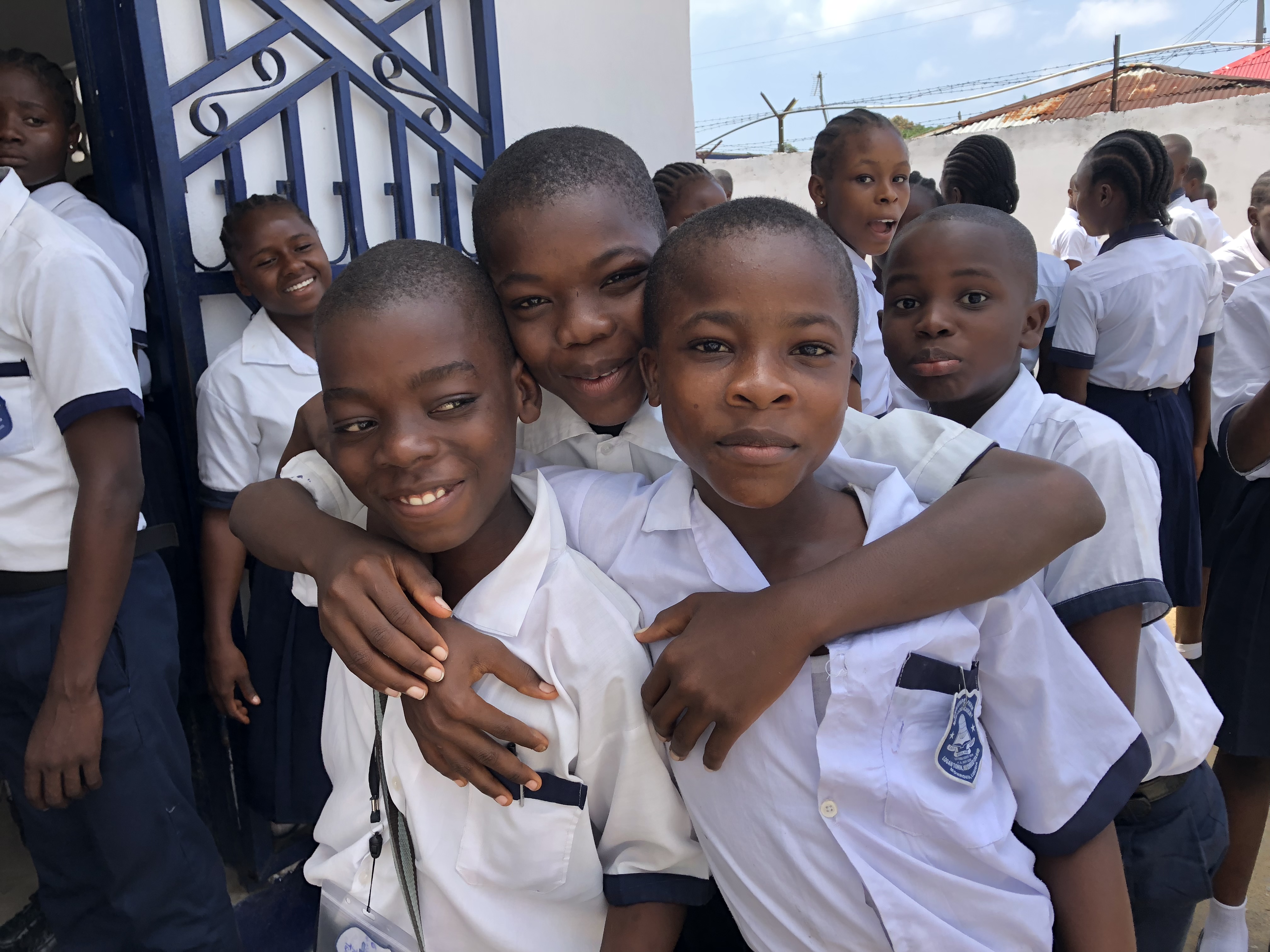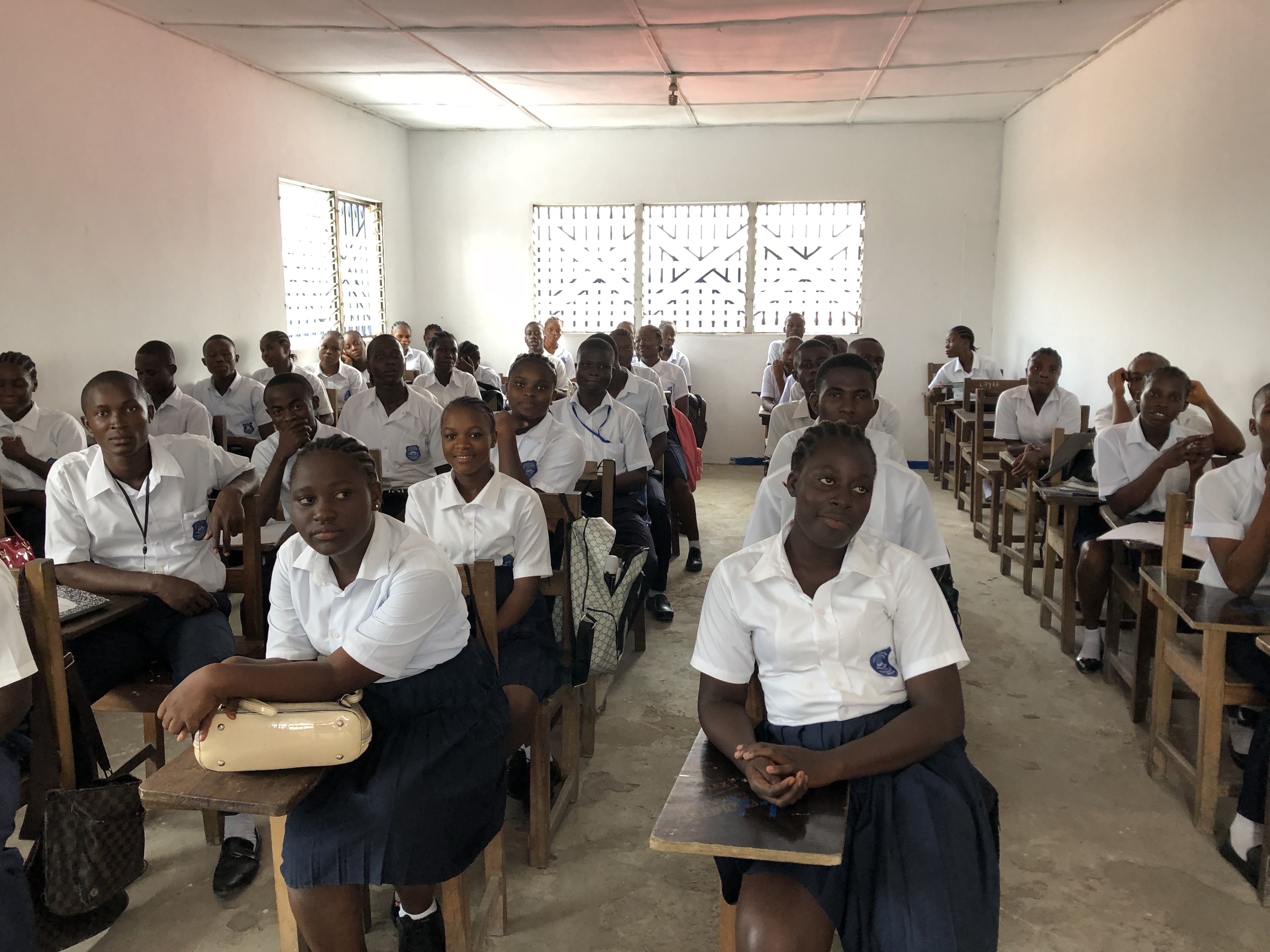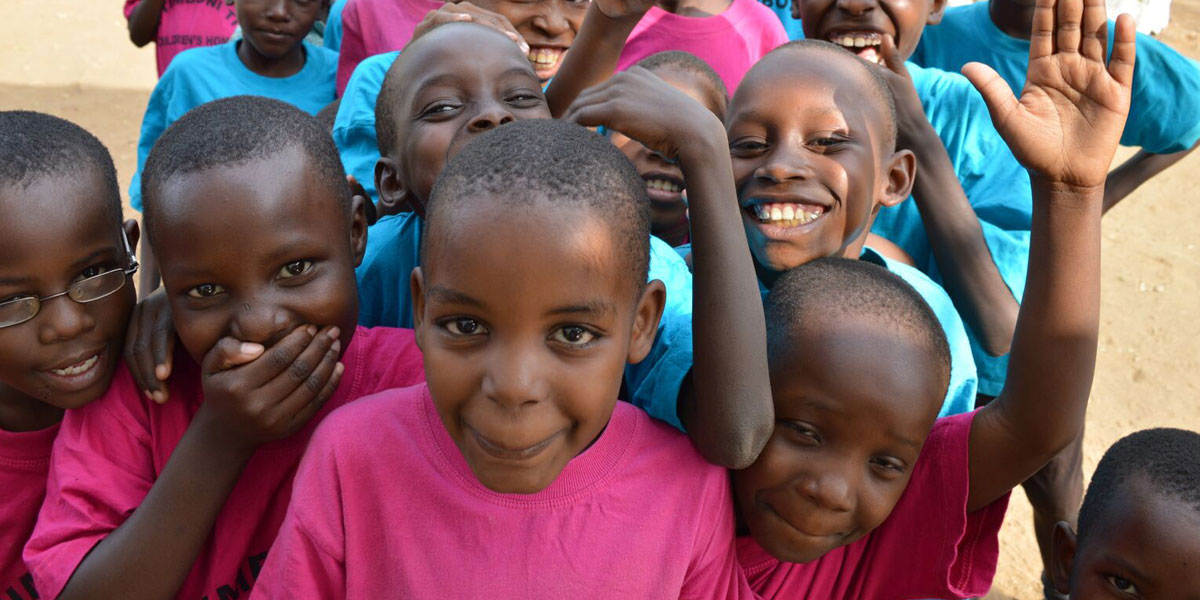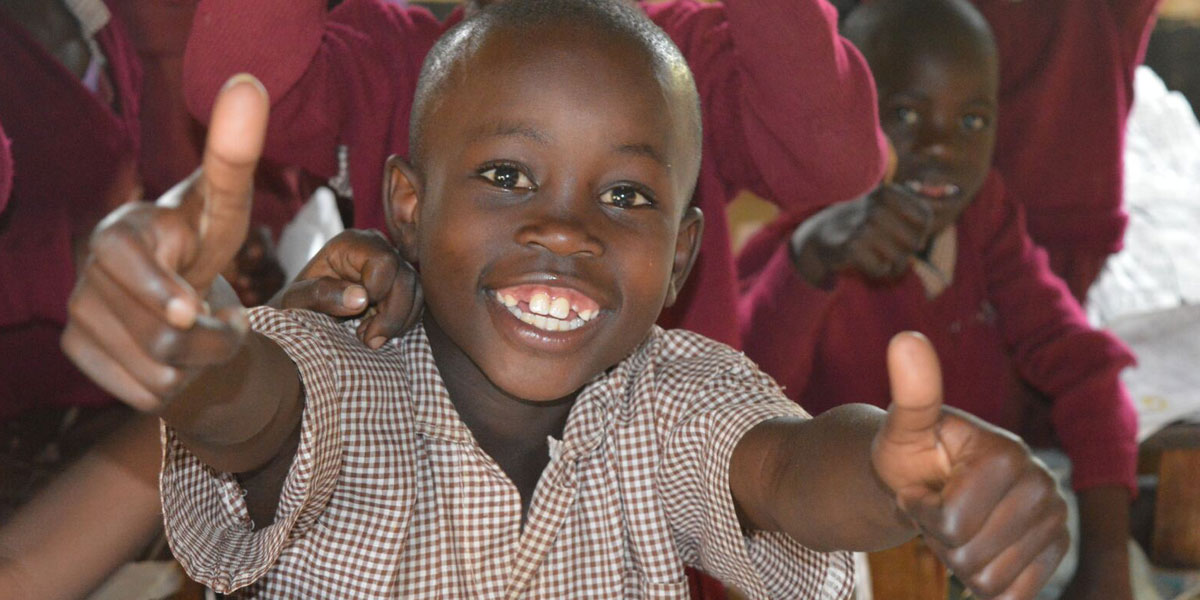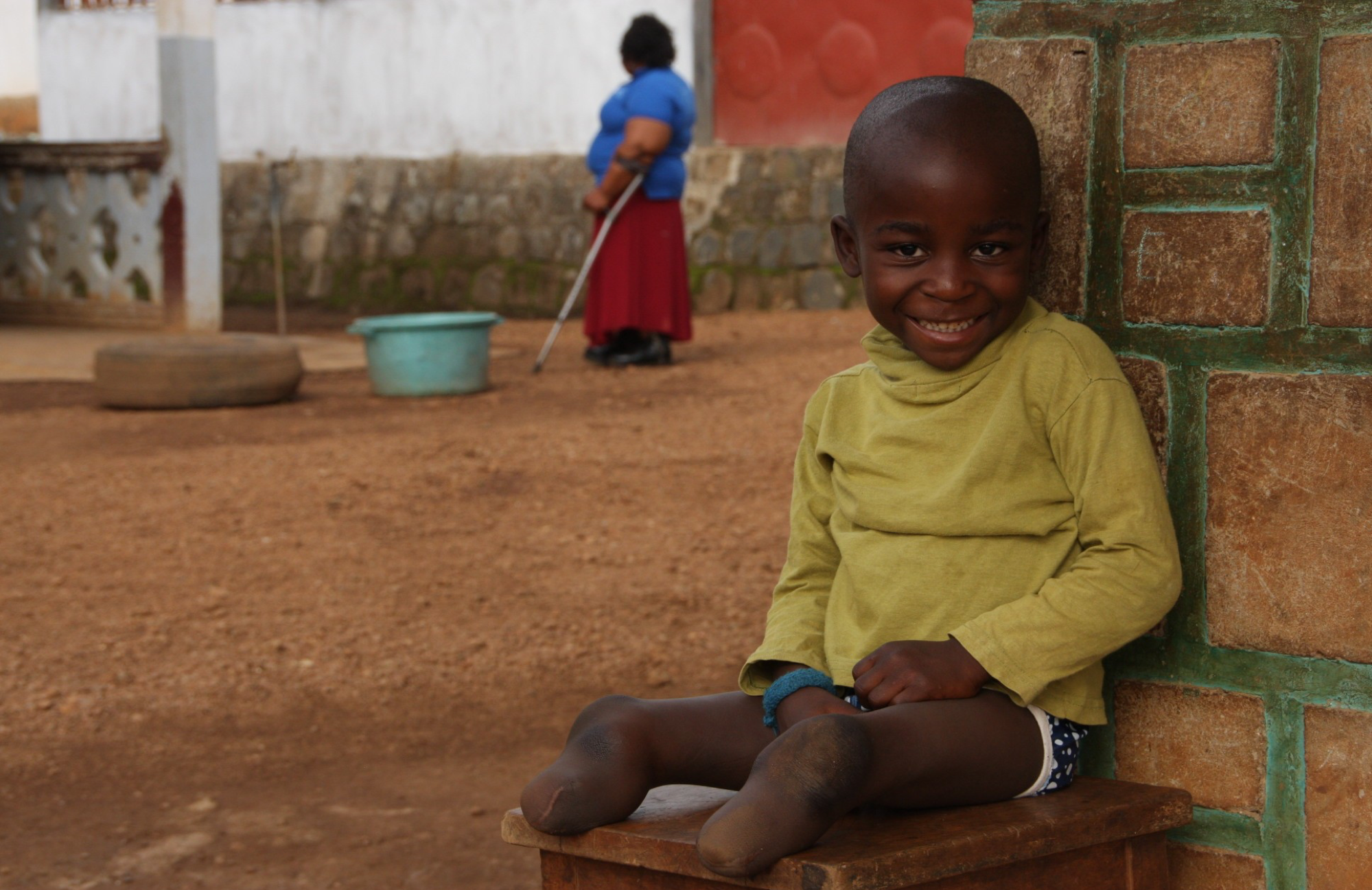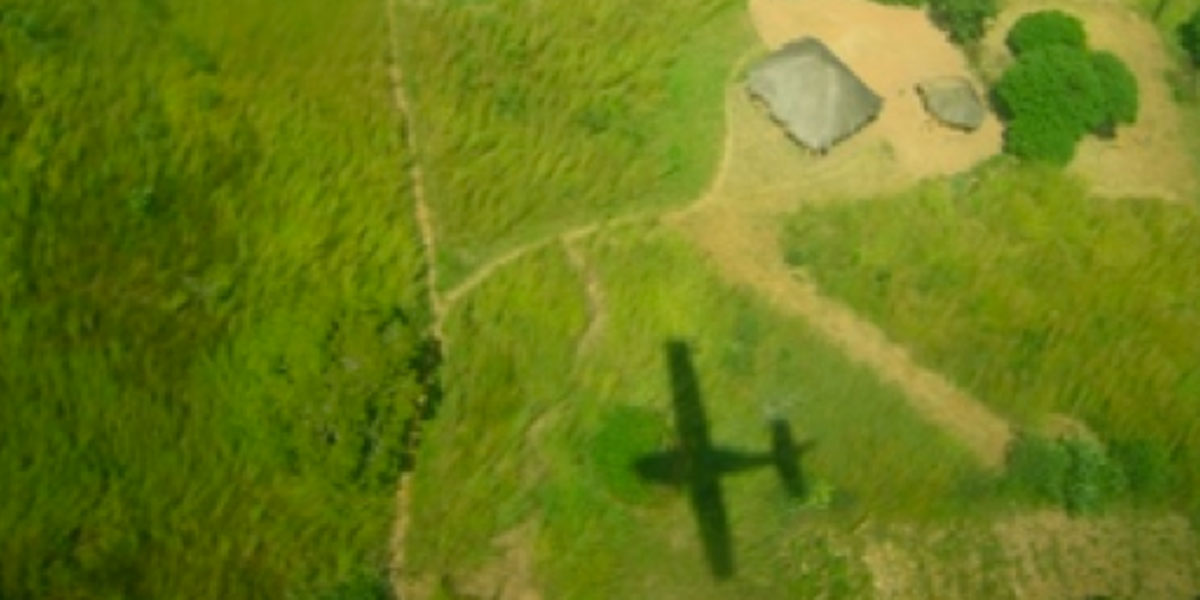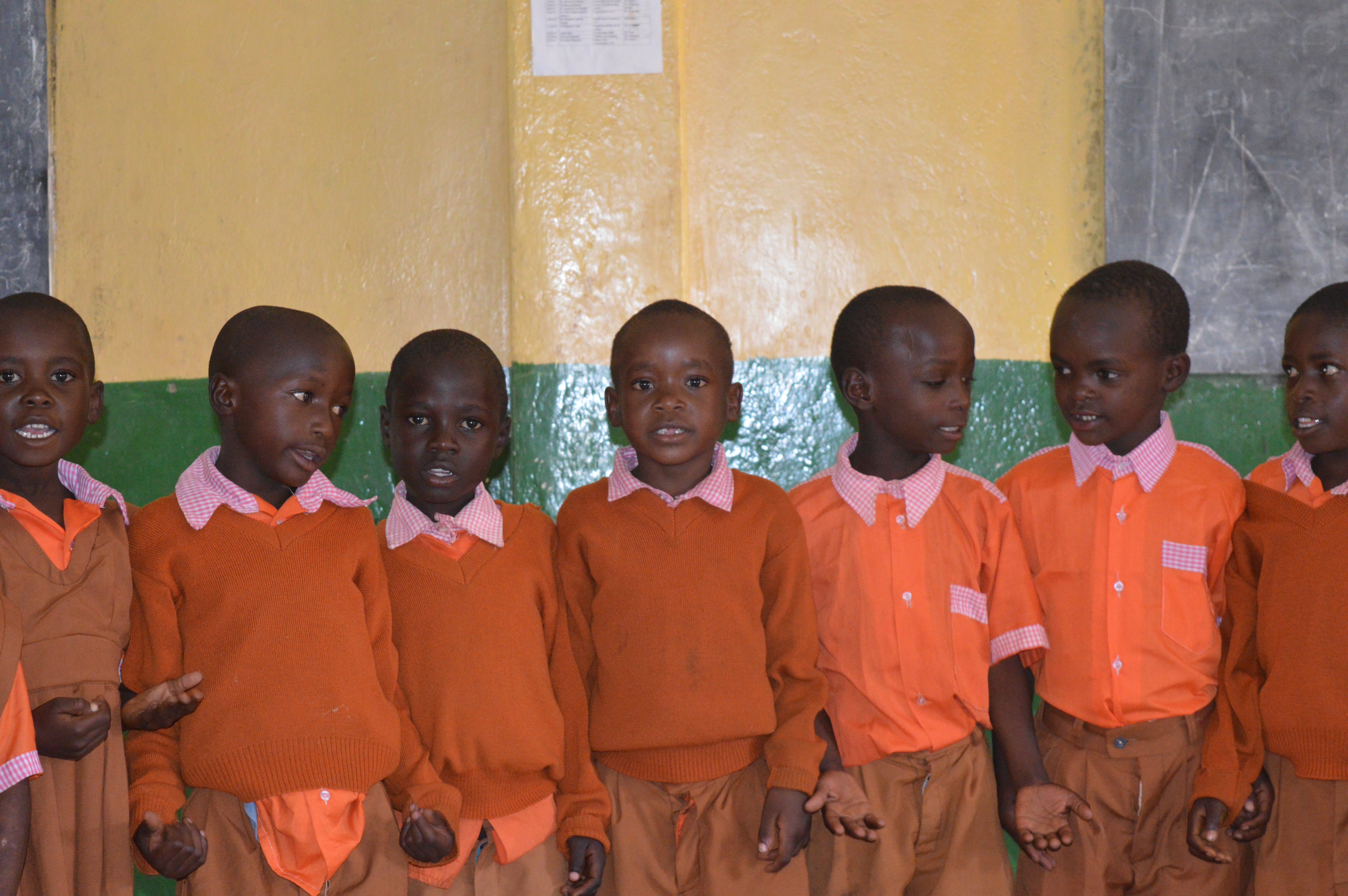Driving up the straight road, with local shops pressing on either side, John pointed out the glitteringly white building at the top. “That’s the school,” he told us. We entered the metal blue gate and behind was a small concrete play area, a two storey building on one side, a large assembly hall and beyond a toilet block, library and more classrooms in an extended bungalow. Behind which was an area for cooking and storage. A very cramped plot!
Upon closer inspection each classroom was packed with children, in one year alone there are 100 pupils. This 6th grade class is split in two and when sat down their knees were nearly touching the chalk board at the front.
One would imagine that these crowded, overflowing classes would be a breeding place for discontent, but no, all of the children we met, from 6 – 16 years were thrilled to be there, their enthusiasm to learn is infectious and a great contrast to our western attitudes.
This school opened in 1994 with 25 pupils, after Brother John Dewalt met two Christadelphian missionaries. He explained that since the end of the war there were many orphaned children sleeping on the streets, without aid and open to exploitation and he wanted to help.
Primary education in Liberia can be expensive. Initially the fees may look affordable, but schools can invoke extra costs for uniform, registration and library fees limiting access to education to only 35% of the population.
Over the years the Christadelphian Meal-A-Day School in Monrovia has grown into one which educates and funds 650 pupils in the primary school (if parents can afford it they pay a small fee) and 250 in the 3 senior class years (whose education is subsidised by a local source).
All 900 children, are provided daily with a free and substantial midday meal, which is conceivably their only food all day. This is cooked by a dedicated staff and funded totally by CMAD at costs $33,000 of year.
Primary education is across 9 grades. Pupils begin at 6/7 years and are expected to ‘graduate’ into the next year by passing all their 10 subjects. If they fail a few subjects then they are offered the opportunity to attend summer school to catch up and therefore graduate with their class mates. While on site and learning, they are also fed.
The standard of teaching and attainment in the school is high and a testament to the commitment of the leadership and staff team.
It was extremely heart-warming to attend a staff meeting which was prioritising the needs of the children above their own. They are not only supporting the poorest in their local community with free education, they are totally committed to make it the best education they possibly can. John has certainly set the tone in his leadership style and we do hope and pray that this project continues to move forward in the same vein. What a heart warming project. Thank you to everyone who generously donates to CMaD year by year to fund our projects and this school which is giving opportunities to some of the poorest children in the world.

